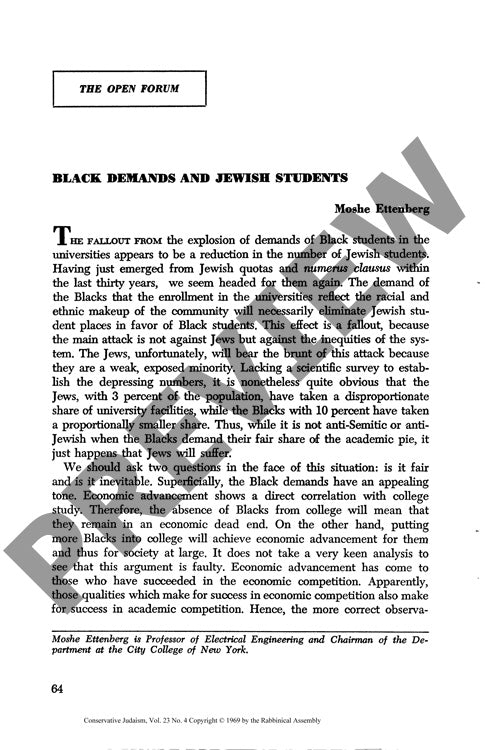Black Demands and Jewish Students
Couldn't load pickup availability
When Black student activists demanded proportional university representation in the late 1960s, their calls for racial justice posed an unexpected dilemma for another minority group - Jewish students, who held university spots far exceeding their 3% share of the population. This tension between two marginalized communities competing for limited educational resources raised complex questions about merit, fairness, and the purpose of higher education itself. Through theoretical analysis of competing educational philosophies - from economic advancement to identity formation - and demographic modeling, the research examines whether race-based admission policies would necessarily displace Jewish students, who had achieved significant academic representation despite systemic barriers. The analysis reveals that maintaining scholarly standards alongside racial quotas would likely reduce Jewish admission rates, while reimagining universities' core mission could potentially accommodate both groups' needs. Rather than accept this zero-sum framework, the findings suggest that Jewish and Black communities share common cause as vulnerable minorities facing structural inequities. The research recommends Jewish community engagement to oppose discriminatory quotas while advocating for expanded educational access that upholds academic excellence and advances opportunities for all marginalized groups.

More Information
-
Physical Description
-
Publication Information
Published 1969
ISBN
-
Publication Credits
Moshe Ettenberg

